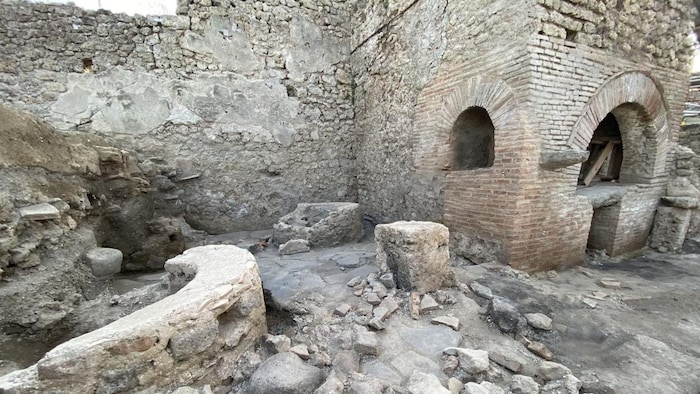Open in full screen mode The house was divided into two: a residential sector and a production area intended for the manufacture of bread. Agence France-Presse Speech synthesis, based on artificial intelligence, makes it possible to generate spoken text from written text. Locked up slaves, donkeys blindfolded in a confined space: archaeologists have unearthed a “prison bakery” in the ancient city of Pompeii, destroyed in AD 79 by the eruption of Mount Vesuvius. These excavations carried out in a house made it possible to discover a narrow room with no outside view, equipped with small windows with iron bars to let the light through, the site located near Naples, in the south of Italy, announced in a press release. x27;Italy. Archaeologists concluded that there was a bakery-prison, where slaves and donkeys were locked up and exploited for grind the grain necessary for the production of bread.
Pompeii is the only archaeological site in the world that offers vision complete view of an ancient Roman city.
Research also revealed the presence of engravings on the ground to coordinate the movement of the animals, forced to turn for hours while blindfolded.
The house , currently being renovated, was divided – as is often the case – into a residential area decorated with refined frescoes and a production area intended here for bread making.
Loading
The walkouts continue in the Quebec public sector
ELSE ON INFO: The walkouts continue in the Quebec public sector
In one of the rooms of the bakery, three skeletons had already been found in recent months, confirming that the house was inhabited.
We must imagine the presence of people with servile status whose owner felt the need to restrict freedom of movement, underlined the director of the Pompeii site Gabriel Zuchtriegel in a scientific article.
This is the most shocking aspect of ancient slavery, the one devoid of both relationships of trust and promises of freedom, where we were reduced to brutal violence, an impression fully confirmed by the securing of windows with iron bars.
Volcanic ash spewed 2000 years ago by Vesuvius sedimented on most of Pompeii's homes, allowing them to be almost completely preserved, as were many of the bodies of the 3,000 deaths caused by the disaster.
Pompeii, listed as a UNESCO World Heritage Site, is the second most visited tourist destination in Italy after the Colosseum in Rome.

